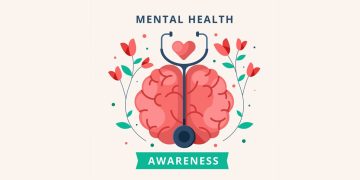Unlocking Your Full Potential: A Holistic Approach to Self-Improvement
Self-improvement is a journey that requires dedication, perseverance, and a holistic approach. To unlock your full potential, you need to address various aspects of your life, including physical, emotional, mental, and spiritual well-being. By taking a holistic approach to self-improvement, you can build a strong foundation for personal growth and transformation.
Understanding Holistic Self-Improvement
Holistic self-improvement is a comprehensive approach to personal development that focuses on the interconnectedness of the mind, body, and spirit. Instead of just focusing on one aspect of your life, such as career or relationships, holistic self-improvement considers all areas of your life and how they impact each other. By addressing the root causes of your challenges and implementing sustainable changes, you can unlock your full potential and live a more fulfilling life.
Physical Self-Improvement
Physical self-improvement encompasses taking care of your body through healthy eating, regular exercise, and proper rest. By fueling your body with nutritious foods, staying active, and getting enough sleep, you can improve your energy levels, boost your mood, and reduce your risk of developing chronic diseases. Incorporating activities such as yoga, meditation, or tai chi can also help you improve your flexibility, strength, and overall well-being.
Emotional Self-Improvement
Emotional self-improvement involves cultivating self-awareness, managing stress, and building healthy relationships. By practicing mindfulness, journaling, or therapy, you can gain insight into your emotions, thoughts, and behaviors. Learning how to cope with stress in a healthy way, setting boundaries, and enhancing your communication skills can help you cultivate resilience, empathy, and emotional intelligence.
Mental Self-Improvement
Mental self-improvement focuses on expanding your knowledge, skills, and cognitive abilities. By reading books, taking courses, or learning a new hobby, you can stimulate your mind and enhance your cognitive function. Setting goals, developing problem-solving skills, and practicing critical thinking can also help you increase your mental clarity, creativity, and productivity.
Spiritual Self-Improvement
Spiritual self-improvement involves connecting with your higher self, finding meaning and purpose in your life, and cultivating a sense of inner peace. By exploring your beliefs, values, and spirituality through practices like meditation, prayer, or mindfulness, you can deepen your connection to yourself and the world around you. Developing a sense of gratitude, compassion, and forgiveness can also help you cultivate a sense of purpose and fulfillment.
Common Questions About Holistic Self-Improvement
How can I get started with holistic self-improvement?
To get started with holistic self-improvement, begin by assessing all areas of your life and identifying areas for growth and improvement. Set specific, measurable, achievable, relevant, and time-bound goals for each aspect of your life, such as health, relationships, career, and personal development. Create a self-care routine that incorporates activities that nurture your mind, body, and spirit, such as exercise, meditation, and journaling.
What are some benefits of a holistic approach to self-improvement?
Some benefits of a holistic approach to self-improvement include improved overall well-being, increased self-awareness, enhanced resilience, better stress management, and stronger relationships. By addressing all aspects of your life, you can create a more balanced and fulfilling existence, where you feel more connected to yourself and others.
How can I stay motivated on my self-improvement journey?
To stay motivated on your self-improvement journey, focus on celebrating small wins, practicing self-compassion, and surrounding yourself with supportive people. Set realistic goals, track your progress, and adjust your strategies as needed. Remember that self-improvement is a continuous process that requires patience, perseverance, and self-reflection.
Conclusion
Unlocking your full potential requires a holistic approach to self-improvement that addresses all aspects of your life. By taking care of your physical, emotional, mental, and spiritual well-being, you can create a strong foundation for personal growth and transformation. Embrace the journey of self-discovery, practice self-compassion, and stay committed to your goals. With dedication and perseverance, you can unlock your full potential and live a more fulfilling life.












































